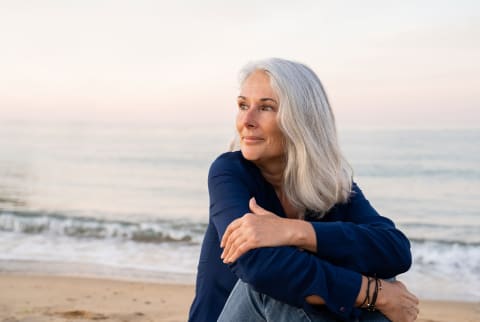Advertisement
How To Improve Memory & Learning As You Age, According To Research


Keeping your brain healthy and sharp as you get older is one of the most important factors for aging with ease. There are plenty of ways to mind your brain, but according to research published in the Journal of Alzheimer's Disease, physical activity is a big one you don't want to miss. Here's what they found.
Studying brain health & exercise
For this study, researchers wanted to build on existing scientific findings that support physical exercise as a way to prevent dementia and Alzheimer's disease. Namely, they wanted to look more closely at the mechanisms underscoring that link.
To do so, they looked at brain scans of over 10,000 people, identifying differences in brain matter associated with different rates of physical activity.
And across all those brain scans, it was abundantly clear that physical activity is beneficial for the brain. Participants who regularly exercised not only had larger brain volumes of gray matter compared to those who didn't (which is critical for memory, movement, and emotions), but they also had more white matter (which helps with problem-solving, focusing, learning, and even balance).
As the study's lead author Cyrus Raji, M.D., explains in a news release, "Exercise not only lowers the risk of dementia but also helps in maintaining brain size, which is crucial as we age."
What to do about it
Physical activity is a pillar of health, well-being, and longevity overall, offering us a wide array of benefits to the body, mind, and spirit. Based on these findings, it's neuroprotective to boot!
And it's worth noting that even moderate physical activity was beneficial in this research. Study co-author David Merrill, M.D., notes that taking 4,000 steps a day or less can still have a positive effect on brain health—it's just about getting moving. "[4,000] is much less than the often-suggested 10,000 steps, making it a more achievable goal for many people," he adds.
If you want a hard-and-fast number from the CDC, the current Physical Activity Guidelines for Americans is 150 minutes of moderate-intensity physical activity and two days of muscle-strengthening activity per week.
That could be as manageable as three half-hour walks, one hourlong yoga class, and two days with some simple weight circuits throughout the week.
And as editor-in-chief of the Journal of Alzheimer's Disease, George Perry, Ph.D., adds, "When added to other studies on the role of diet, stress reduction, and social connection, [exercise offers] the proven benefits of drug-free modifiable factors in substantially reducing Alzheimer's disease."
The takeaway
Whatever your health goals are, be sure to get moving! It boosts endorphins, keeps your muscles strong, and according to this study, can help support your brain as you age too.